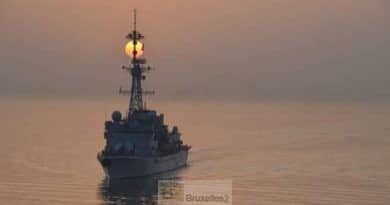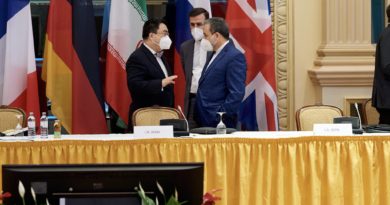[Yugoslavia Memory of a disaster] 1990-1999: Europe responsible, incapable or ignorant
(BRUSSELS2) 1990-1991, Responsible Europe. This is the time of "happy" stammerings and "tragic" errors
Between 1990 and 1991, Europe alone was in control of the Yugoslav question. The Russians (the coup against Gorbachev took place in August 1991) and the Americans (first intervention in the Gulf in 1990) are busy elsewhere and have “given the keys” to the crisis to the EEC. As predicted, and announced by all the experts — and the Serbs themselves — the first Yugoslav reaction to independence was a… military reaction. It is the short intervention in Slovenia (1991) but above all the first war in Croatia (with the bloody capture of Vukovar).
In 1991, after a relative astonishment, Europe reacted in a rather beneficial way
The first actions seem to be halted. This is the 1991 agreement signed on the island of Brion, which aims to postpone independence for a few months and which attempts to lay the keys to a dialogue between the communities. These are also the criteria laid down for recognition (by the ad hoc commission chaired by the former French Minister of Justice Robert Badinter) and the first plans for military intervention, all of which were immediately aborted (to the point that one might wonder if they were really realistic). But it is also the moment when Europe is torn apart over its political unity, over the establishment of a common foreign and security policy (we are in the middle of a discussion about what will be the Maastricht Treaty). This is the first intra-European skid. Europe thus renounces the sending of a military force (proposed for a moment by the French, then the Dutch), leaves the Serbian army to Vukovar and Slavonia. France yields to Germany on the recognition of Slovenia and Croatia, in exchange for its final agreement on the Economic and Monetary Union. Germany kept its promise to recognize the new republics before Christmas 1991. But European unity was shaken and lost its credibility in the region. Europe seems, really, to pass, at this time, on the brink of a chance to stem the crisis. A few key weeks can be particularly detailed: in September 1991 and in
December (recognition of independence).
1992-1999 - Irresponsible, Absent Europe?
Between 1992 and 1999, an impassive Europe, withdrawn into itself, gave up managing the crisis, particularly in Bosnia, and handed over to the United Nations, NATO, contenting itself with participating (often massively in terms of men, finances and humanitarian aid) and to comment politically on events in the region.
From 1992, Europe develops its power through humanitarian aid — what she does best —. It was at this time that its doctrine in this area was defined, which would make it one of the world leaders in humanitarian aid, and that the European Humanitarian Aid Office (Echo) was formalized. But Europe fails in the military, at least in an autonomous way. If it provides most of the troops to the UN, its effectiveness depends on international action. And in Srebrenica, as in all of Bosnia and Croatia, it will be European troops (Dutch, French, etc.) who, on the front line, will be confronted with ethnic cleansing. At that time too, Europe was failing to respect its historical foundation – the “Never again” from the concentration camps and the Nazi purge having been one of the common and philosophical springs of the founders of Europe. It also fails in respecting its fundamental principles: the reception of victims. While many people are released from the Serbian prison camps, Europe closes its doors, several countries refusing to serve as a host country for these refugees. Terrible "fault" which has today almost disappeared from official European history.
This intra-European crisis will be salutary. It will accelerate the creation of a Europe of asylum (and immigration). Certain elements find their place in the Amsterdam Treaty and the Tampere Summit which creates the area of justice and freedom. The text on “temporary protection” (also known as “humanitarian asylum”) arose directly from this period. The instrument has never been used since.
In 1995, the Dayton Accords symbolized the “pax americana”. The United States, under the leadership of Bill Clinton, have decided to support a shaky solution (the freezing of territorial conquests and the division into several zones), but which makes it possible to "stabilize" Bosnia. With the help of American advisers, and some adequate arms deliveries, Croatia reconquered, in a lightning offensive, the territory “occupied” by the Serbs. (cf. key role of the Gaullist Jacques Chirac elected President of the Republic in France, which constitutes a notable turning point in French politics, reputed to be too wait-and-see and favorable to the Serbs).
In 1999, this "recovery" ended with the intervention of NATO in Kosovo, after the failure of the Rambouillet negotiations between Serbs and Kosovars and the massive expulsion decided by Milosevic of the Kosovo Albanians. Here again, the Europeans provided most of the men, the Americans providing the air shield (cf. key role played by Tony Blair in the ground engagement).
This fourth Yugoslav war (after that of Slovenia, Croatia and Bosnia) took place at the same time as an awareness of the need for an autonomous European defense policy. In 1998, at the Saint Malo summit, the British and French agreed on the priorities to come.
(NGV)

